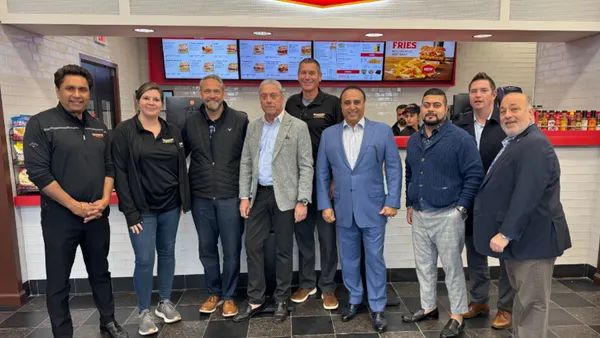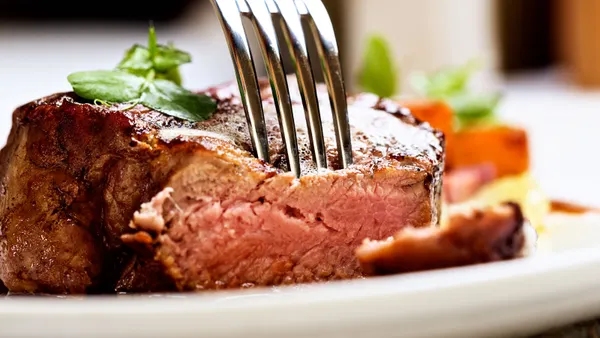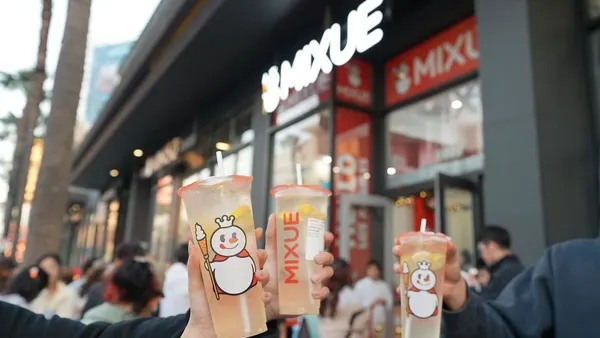Dive Brief:
- Chipotle's mobile pickup lanes, dubbed Chipotlanes, are driving strong digital sales and highly profitability, so the company shifted its real estate strategy to seek more sites that can accommodate them, CEO Brian Niccol told investors during a Tuesday earnings call.
- Of the over 80 restaurants currently under construction, about half will feature a Chipotlane, resulting in about 60 Chipotlanes by the end of the year. In 2020, the company expects to open 150 to 165 restaurants, and more than half will include Chipotlanes.
- Digital sales grew 87.9% to $257 million and accounted for 18.3% of sales, with Chipotlanes contributing to this growth, he said.
Dive Insight:
Chipotle is "knocking on the door of digital becoming [a] $1 billion business," CFO Jack Hartung told investors, and the continued success of Chipotlanes will be key to this growth. Digital ordering industrywide has been growing at a fast clip for the last four years and now represents 3.1 billion visits and $26.8 billion in sales, with digital orders to rise in the double-digit range next year, according to NPD Group data. That's a lot of potential business for Chipotle to continue to capture.
Since rolling out its initial test of Chipotlanes during the first quarter 2019, the company has already built 20 Chipotlanes.
"[Chipotlanes] will drive our digital results as well as drive the total business, which hopefully as we've seen to date will result in even better returns going forward as we build out the new units," Niccol said.
A shift in real estate strategy is a must in order to make this work. The vast majority of its current real estate is not end-caps but in-line sites, so few existing restaurants have the capacity to be retrofitted with a Chipotlane. This means new restaurants will be the most likely candidate to get a Chipotlane, Niccol said.

The company plans to focus on end-cap locations that make Chipotlanes possible, Hartung said. But it will face additional competition from other fast casuals like Blaze Pizza, The Habit Burger and Cava seeking standalone locations or end caps. Chipotlanes cost an additional $75,000, but considering these sites tend to have a 50% higher digital mix, the additional cost will likely be recouped quickly.
"Chipotlanes are going to be a higher return than the average portfolio," Hartung said.
The company also won't likely turn these Chipotlanes into traditional drive-thrus either because it isn't the right shift for the current business strategy, Niccol said. The company's order-ahead business has been growing with greater access and less friction, he said.
"I think this is the future of how people will want to interact with restaurant companies because this is arguably faster than any other way possible to get your food," Niccol said. "You order ahead and you don’t have to get out of your car and our model is already fast now."









